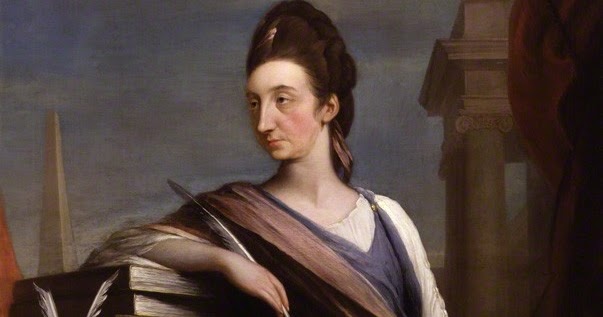Subscripe to be the first to know about our updates!

Catherine Macaulay Letters on Education
Alaa Alghamdi
Catherine Macaulay wrote Letters on Education in the last year of her life, following a career in which she had contributed significantly to the intellectual and political life of her day, far more so than the average woman. Her own life gives the context and provides credence for her work, which argues in essence that women should be educated in the same way as men are, for similar results. Unlike Mary Wollstonecraft (whom she inspired), Macaulay argues that to do so would be to allow women to enter public and intellectual life much as men do. The only difference between the two sexes was the failure to properly educate girls.
For us in the twenty-first century, this is actually a far more familiar and therefore more palatable argument than that of Mary Wollstonecraft, who linked women’s education with their role as mothers. Rather than focusing on the role within the family collective, Macaulay acknowledges no limitation to the real and potential contribution of women if they are properly educated to enter that role. Without such education, of course, they will inevitably find themselves limited, not because of their inherent ability but because of circumstances. Given that Macaulay herself was not limited by the conventions of society with regard to her gender, it may be assumed that she saw no impediment to other women following her. Macaulay herself must have been well educated as she had a career as a historian, establishing the method by which history was to be written in times to come. She had a keen interest and indirect involvement in politics. In other words, her scope of interest and accomplishment lay far beyond the private realm in which most women found themselves, a realm that Mary Wollstonecraft remains inside of in her writing. It is interesting, too, that Macaulay violated social standards with regard to seemly behavior in her own life, causing scandal by eloping at the age of 47 with a 21 year old man. Yet while her actions may have caused her to be frowned upon by society, her intellectual gifts were such that she could continue to work and contribute (albeit from America) without approval from society. She was a successfully woman, and her own life and career appear to prove her point regarding the liberating aspects of educating women. However, one must also take into account that she must have been a person of extraordinary intelligence, determination and a thick skin, appearing relatively insensible to the repressive norms of the day.
It is interesting, however, that Macaulay dwells on the notion of chastity for women and girls. The focus on virginity and the admonition about chastity, from our modern point of view, are a tool for the subjugation of women. Women’s chastity is seen as a possession within the patriarchal society, and she loses autonomy over this most personal part of herself if, for example, her husband or father has a stake and interest in whether she is chaste. Concentrating on chastity can lead to the notion of a woman belonging to another, a concept that is abhorrent, naturally, to anyone advocating women’s rights. However, Macaulay considers chastity a form of empowerment, or perhaps more importantly, the lack of chastity is the quickest way to a loss of power. In this she is arguably echoing the status quo, which would state that women must avoid sexual dishonor at all costs. From Macaulay’s perspective, she is merely offering a way for women to not fall prey to the worst inequities of the patriarchal system they find themselves in.
Professor of English Literature *